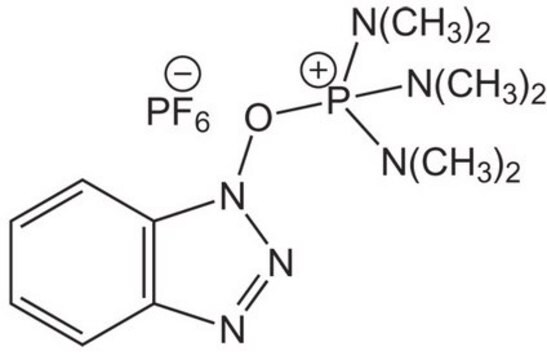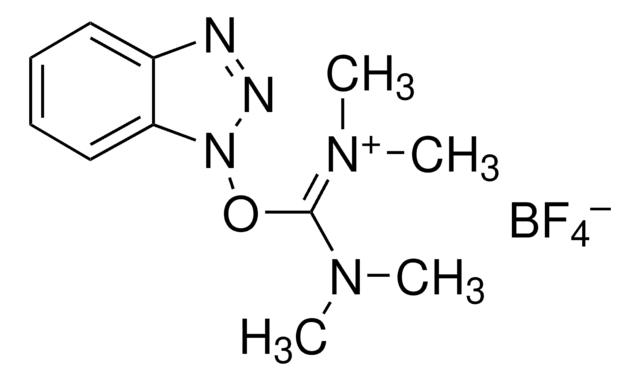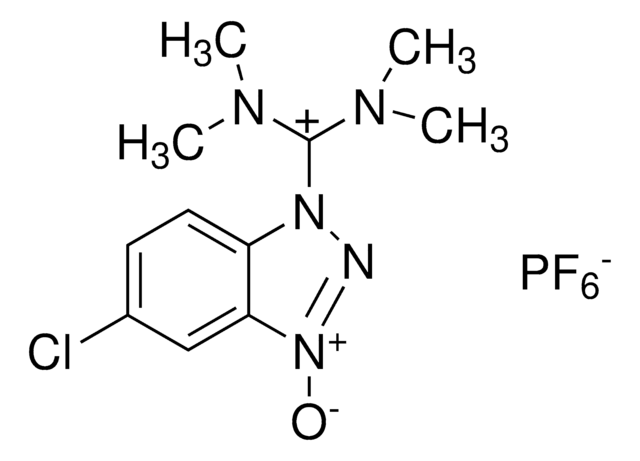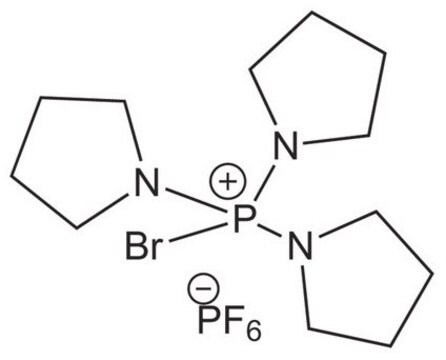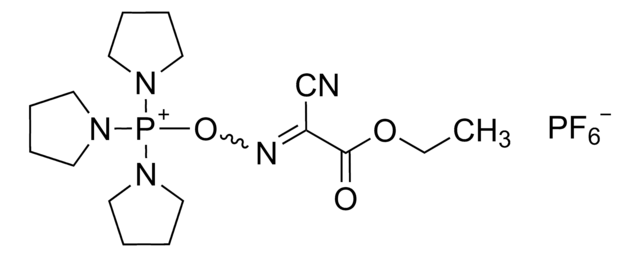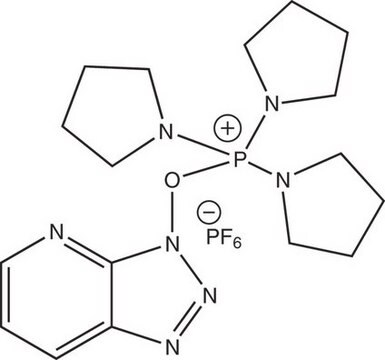377848
(Benzotriazol-1-yloxy)tripyrrolidinophosphonium hexafluorophosphate
98%, for peptide synthesis
Synonym(s):
PyBOP®
About This Item
Recommended Products
Product Name
(Benzotriazol-1-yloxy)tripyrrolidinophosphonium hexafluorophosphate, 98%
Assay
98%
form
powder, crystals or chunks
reaction suitability
reaction type: Coupling Reactions
mp
154-156 °C (dec.) (lit.)
application(s)
peptide synthesis
storage temp.
2-8°C
SMILES string
F[P-](F)(F)(F)(F)F.C1CCN(C1)[P+](On2nnc3ccccc23)(N4CCCC4)N5CCCC5
InChI
1S/C18H28N6OP.F6P/c1-2-10-18-17(9-1)19-20-24(18)25-26(21-11-3-4-12-21,22-13-5-6-14-22)23-15-7-8-16-23;1-7(2,3,4,5)6/h1-2,9-10H,3-8,11-16H2;/q+1;-1
InChI key
VIAFLMPQBHAMLI-UHFFFAOYSA-N
Looking for similar products? Visit Product Comparison Guide
Application
Synthesis of single labeled oligonucleotides that fluoresce upon matched hybridization
Generation of endocrine disruptor chemical binders
Cycloaddition to template-assembled multivalent peptide conjugates
Legal Information
Signal Word
Warning
Hazard Statements
Precautionary Statements
Hazard Classifications
Acute Tox. 4 Oral - Aquatic Acute 1 - Aquatic Chronic 1 - Skin Sens. 1
Storage Class Code
11 - Combustible Solids
WGK
WGK 3
Flash Point(F)
Not applicable
Flash Point(C)
Not applicable
Personal Protective Equipment
Choose from one of the most recent versions:
Already Own This Product?
Find documentation for the products that you have recently purchased in the Document Library.
Customers Also Viewed
Articles
Amide bonds are ubiquitous in both nature and industrial applications. They are vital to the structure and function of biological macromolecules and polymers. The importance of this functionality has resulted in numerous approaches to its formation, ranging from stoichiometric activation of carboxylic acids to more recent advances in catalytic amide bond formation.
Our team of scientists has experience in all areas of research including Life Science, Material Science, Chemical Synthesis, Chromatography, Analytical and many others.
Contact Technical Service
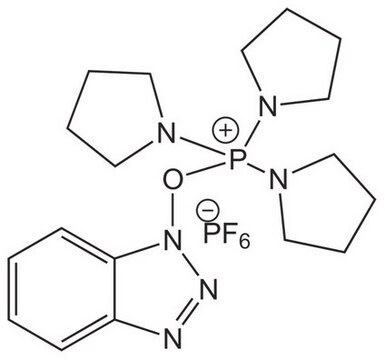

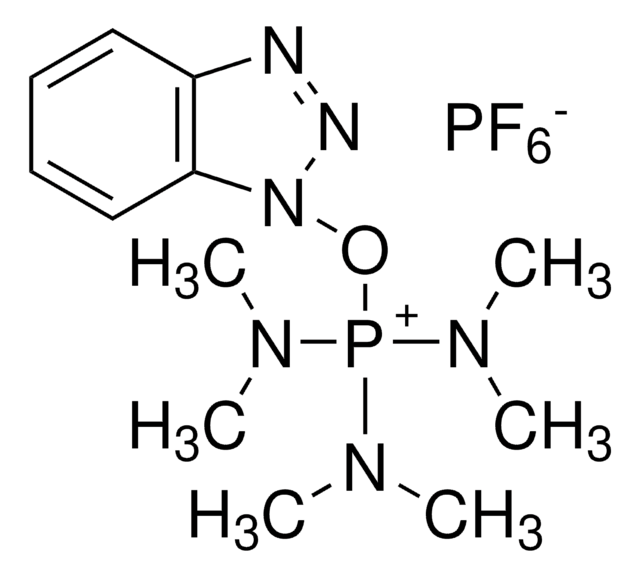


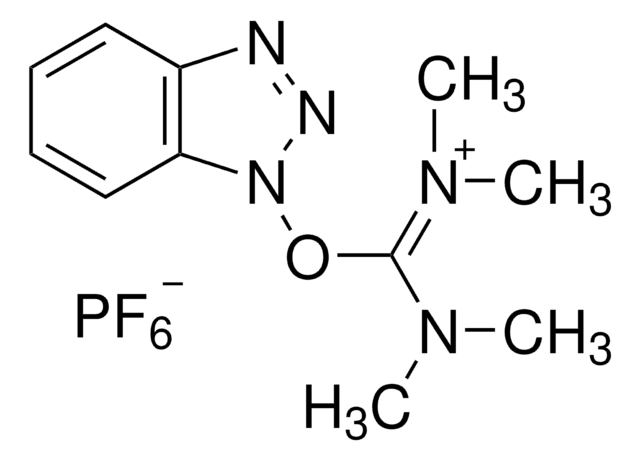


![1,8-Diazabicyclo[5.4.0]undec-7-ene 98%](/deepweb/assets/sigmaaldrich/product/structures/120/564/5b373e23-1624-489c-8efb-692de0f96ffb/640/5b373e23-1624-489c-8efb-692de0f96ffb.png)


